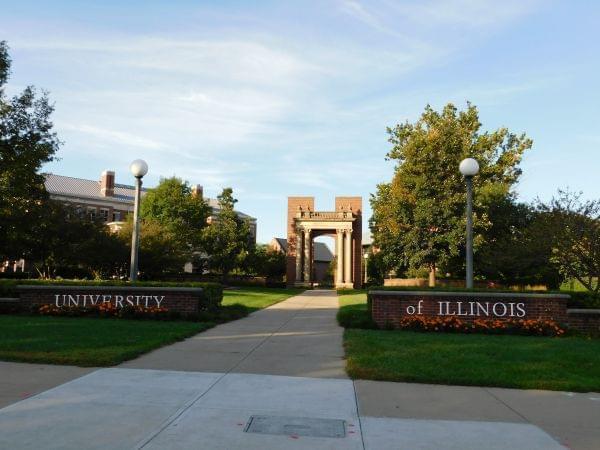UIUC Sexual Assault Investigation; Protecting The Legacy Of Ida B. Wells And Other Civil Rights Leaders; Snake Road Migration; Invasive Jumping Worms

Jimmy Emerson/Flickr(CC BY-NC-ND 2.0)
An investigation by ProPublica and NPR Illinois recently found that the University of Illinois may have helped preserve the reputations of sexual harassers. We spoke about how the U of I handles sexual misconduct allegations, and how some people want the process to change. Plus, some descendants of Black civil rights leaders in Chicago want the public to know more about their family members while also protecting them at the same time. And, a road in southern Illinois more than two miles long closes until the end of October every year to make way for migrating snakes. Also, we learned about Illinois’ newest invasive species, the jumping worm.
UIUC Sexual Assault Investigation
An investigation from ProPublica’s Local Reporting network and NPR Illinois uncovered three instances in which University of Illinois at Urbana-Champaign professors facing sexual harassment allegations were allowed to quietly resign or remain on the payroll. That’s in addition to previous reports of harassment and sexual misconduct allegations against four other U of I employees.
Some went on to work at other universities. Another plans to return to the U of I next year.
Rachel Otwell from NPR Illinois was one of the reporters who broke this story. Professor Kate Clancy is an expert on gender descrimination and harassment in academia and teaches anthropology at the U of I. Nicole Gorovsky is an attorney based in St. Louis who specializes in representing victims of sexual violence.
“What I see a lot of in these University cases, is history just repeating itself,” says Attorney Nicole Gorovsky.
— The 21st (@21stShow) September 3, 2019
Protecting The Legacy Of Ida B. Wells And Other Civil Rights Leaders
In 1955, after Chicago teenager Emmett Till was lynched and beaten to death in Mississippi, his mother Mamie made the decision to have the media cover Emmett’s open casket funeral.
Decades earlier, Ida B. Wells-Barnett was documenting the many cases of lynching in the American South through her journalism. She also fought for the right for women to vote and was one of the founders of the NAACP.
Both of them were among the many historical figures who were important to igniting the civil rights movement. And for years, their families have fought to promote the legacy of their loved ones while also protecting them at the same time.
Michelle Duster is the great-grand daughter of Ida B. Wells-Barnett. Lolly Bowean has written about this for The Chicago Tribune.
"It's not surprising that Ida is getting more attention now than shortly after she died," says Michelle Duster.
— The 21st (@21stShow) September 3, 2019
She says her great-grandmother Ida B. Wells-Barnett was considered very controversial during her life. She says there were efforts to silence her.
Snake Road Migration
It’s the time of year when you’re probably used to seeing lanes and roads closed for construction. But this past weekend, a different kind of pathway was shut off to vehicles. On Sunday, a two and a half mile stretch at the Shawnee National Forest closed down to make way for migrating snakes.
This happens every year along what are officially known as LaRue Road and Forest Service Road Number 345. But if you’ve seen it in the news before, you probably just know it as “Snake Road.”
Scott Ballard is a herpatologist with the Illinois Department of Natural Resources.
"Snakes are not something to be wantonly killed... they're very beneficial to the environment," says Scott Ballard from the Illinois Department of Natural Resources.
— The 21st (@21stShow) September 3, 2019
Invasive Jumping Worms
The northern part of the state near Chicago has become home to Illinois’ newest invasive species. It’s called the jumping worm.
Chris Evans is a forester with the University of Illinois Extension.
3 factors that make an invasive species according to Forestry Extension and Research Specialist Chris Evans:
— The 21st (@21stShow) September 3, 2019
-They’re an exotic species
-They have a free living population on its own
-The population has a negative impact on its new environment
